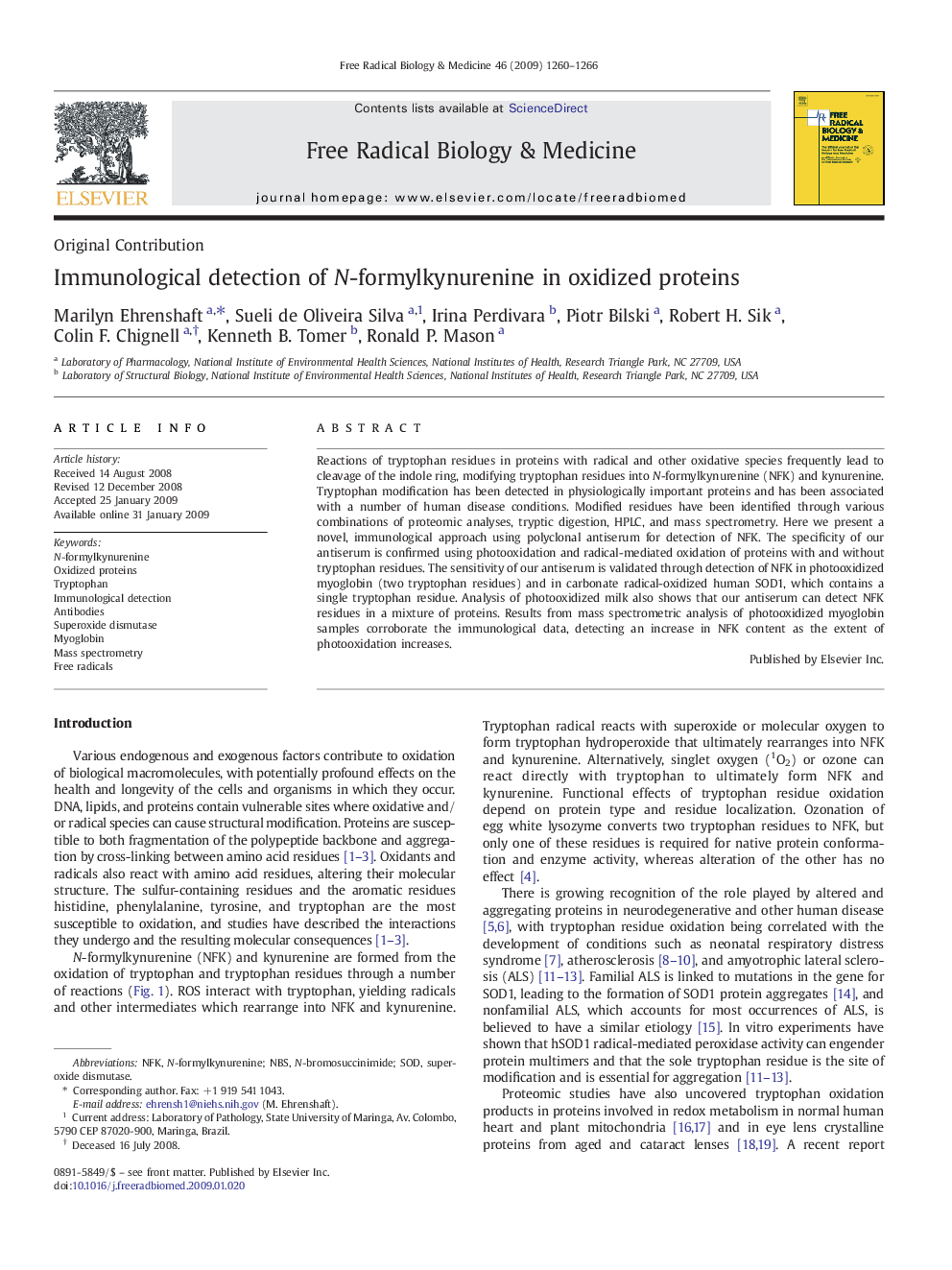| Article ID | Journal | Published Year | Pages | File Type |
|---|---|---|---|---|
| 1910327 | Free Radical Biology and Medicine | 2009 | 7 Pages |
Reactions of tryptophan residues in proteins with radical and other oxidative species frequently lead to cleavage of the indole ring, modifying tryptophan residues into N-formylkynurenine (NFK) and kynurenine. Tryptophan modification has been detected in physiologically important proteins and has been associated with a number of human disease conditions. Modified residues have been identified through various combinations of proteomic analyses, tryptic digestion, HPLC, and mass spectrometry. Here we present a novel, immunological approach using polyclonal antiserum for detection of NFK. The specificity of our antiserum is confirmed using photooxidation and radical-mediated oxidation of proteins with and without tryptophan residues. The sensitivity of our antiserum is validated through detection of NFK in photooxidized myoglobin (two tryptophan residues) and in carbonate radical-oxidized human SOD1, which contains a single tryptophan residue. Analysis of photooxidized milk also shows that our antiserum can detect NFK residues in a mixture of proteins. Results from mass spectrometric analysis of photooxidized myoglobin samples corroborate the immunological data, detecting an increase in NFK content as the extent of photooxidation increases.
